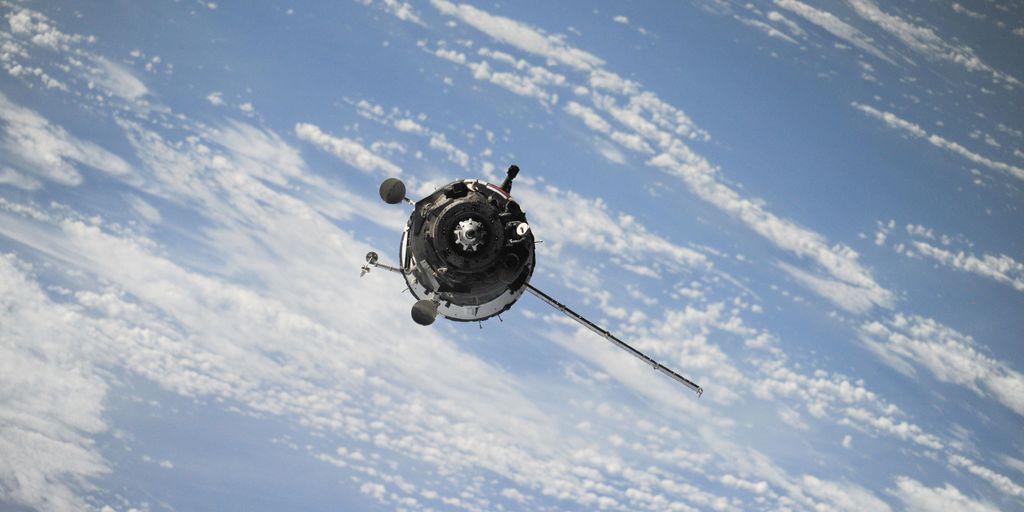NASA is always pushing the limits of what’s possible in space. They want to know more about the universe and find new ways to explore it. One exciting area they’re looking into is quantum computing. This new tech could change how we do things in space, from understanding distant stars to making space travel safer. It’s a big step forward for space exploration.
Key Takeaways
- NASA’s quantum computer research helps us learn more about space.
- Quantum algorithms can solve hard problems and help with things like making new materials.
- NASA uses quantum computing for real-world space jobs, like studying Earth’s climate.
- Quantum tech helps make new materials faster and better.
- Quantum computers are good for simulating things in space, like black holes, and keeping space communications safe.
Advancing Scientific Discovery Through NASA Quantum Computer Research
Unlocking New Insights In Astronomy
NASA’s quantum computer research is really changing how we look at space. These powerful machines can handle calculations that regular computers just can’t, which means we can start to understand things about the universe that were a mystery before. For example, they’re helping us figure out how stars work and how galaxies are put together. It’s like getting a super-powered magnifying glass for the cosmos. This new way of doing things is opening up a lot of doors for astronomers. We’re talking about being able to:
- Simulate really complex stuff, like how black holes merge.
- Process huge amounts of data from telescopes, way faster than before.
- Spot patterns in cosmic data that we’d totally miss otherwise.
It’s a big deal for understanding the universe better.
Revolutionizing Scientific Discovery Process
Quantum computing isn’t just about doing old tasks faster; it’s about changing the whole scientific discovery process. Think about it: with these computers, scientists can run simulations that were impossible before. This means they can test theories and explore ideas in ways they never could. It’s like having a super-smart assistant that can try out millions of possibilities in a blink. This helps speed up how we find new things and understand the world around us. It’s a big shift in how science gets done, making it more efficient and opening up new avenues for scientific understanding.
Boosting High-Energy Physics Research
In high-energy physics, quantum computers are making a huge difference. This field deals with the smallest particles and the most powerful forces in the universe. The experiments, like those at the Large Hadron Collider, produce an insane amount of data. Trying to make sense of all that data with regular computers is a nightmare. But quantum computers can sift through it all, finding tiny clues and patterns that tell us more about how everything works. They’re helping scientists:
- Understand the fundamental forces that hold matter together.
- Analyze particle collisions with incredible detail.
- Develop new ways to identify particles in experiments.
It’s all about getting a clearer picture of the universe’s most basic building blocks.
Harnessing the Power of NASA Quantum Computer Algorithms
NASA’s work with quantum algorithms is really changing how we tackle some of the toughest problems out there. It’s not just about faster calculations; it’s about solving things that were practically impossible before. Think about it: we’re talking about simulations and optimizations that could totally reshape space exploration and even our understanding of the universe. It’s a big deal, and the potential is just massive.
Quantum Algorithms For Complex Problems
Quantum algorithms are a game-changer for problems that are just too complex for regular computers. These aren’t your everyday calculations; they involve massive datasets and intricate relationships that classical machines just can’t handle efficiently. NASA is looking at these algorithms to solve things like optimizing spacecraft trajectories, which is way more complicated than it sounds. We’re talking about factoring in gravity, fuel consumption, and mission objectives all at once. Another area is in analyzing vast amounts of astronomical data. Imagine trying to find a tiny signal in a sea of noise from distant galaxies – quantum algorithms can help with that. They can process information in ways that allow for the identification of patterns and anomalies that would otherwise remain hidden. This capability is pretty much essential for making sense of the huge amounts of data we get from telescopes and probes. It’s all about finding those needles in the cosmic haystack.
Simulating Molecular Interactions
Simulating molecular interactions is a huge deal for NASA, especially when it comes to designing new materials for space. We need materials that can withstand extreme temperatures, radiation, and vacuum conditions. Classical computers struggle to accurately model how atoms and molecules behave at a quantum level, but quantum computers are built for this. They can simulate:
- How different elements bond together under various conditions.
- The stability of new compounds in harsh environments.
- The energy states of complex molecules.
This kind of simulation is critical for developing things like advanced propulsion systems or radiation-hardened electronics. It lets scientists test out new material compositions virtually, saving a ton of time and resources compared to traditional lab experiments. It’s like having a super-powered microscope that can see into the very fabric of matter.
Optimizing Chemical Reactions
Optimizing chemical reactions is another area where quantum algorithms are making a real impact. This is super important for things like life support systems on long-duration space missions or even for creating new types of rocket fuel. Getting a chemical reaction just right means finding the perfect balance of temperature, pressure, and catalysts. It’s a multi-variable problem with an insane number of possibilities. Quantum algorithms can explore these possibilities much faster than classical methods. For example, they can help us:
- Identify the most efficient pathways for synthesizing new compounds.
- Predict reaction yields with greater accuracy.
- Design catalysts that speed up desired reactions.
This capability could lead to breakthroughs in creating more efficient and sustainable processes for space exploration. It’s about getting the most out of every chemical interaction, which is pretty important when you’re millions of miles from Earth. For more on how quantum computing is being applied in various fields, check out this quantum computing education resource.
NASA Quantum Computer Applications in Space Exploration
Quantum computing is really changing how we think about space exploration. It’s not just about faster calculations; it’s about tackling problems that were just too big or too complex for regular computers. We’re talking about things like understanding our planet better, creating new materials for spacecraft, and even making AI smarter for missions far away. It’s a big step forward for NASA and how they do things.
Modeling Climate Change Dynamics
One of the most important things quantum computers can do for us is help with climate change. These machines can process huge amounts of environmental data, giving us a much clearer picture of Earth’s climate systems. This means we can build more accurate models to predict things like:
- Changes in global temperatures
- Shifts in ocean currents
- Patterns of extreme weather events
Better predictions mean we can prepare more effectively and maybe even find new ways to deal with the challenges climate change brings. It’s all about understanding our home planet better from a cosmic perspective.
Predicting Material Properties
When you’re building something that has to survive in space, materials are everything. Quantum computers are becoming a game-changer here because they can simulate how materials behave at a really tiny, atomic level. This lets scientists design and test new materials virtually before they even make them. We’re talking about materials that are:
- Lighter and stronger for spacecraft structures
- More resistant to radiation in deep space
- Better at conducting energy for advanced systems
This speeds up the development process a lot, which is a big deal when every gram and every bit of durability counts.
Enhancing Machine Learning Capabilities
Machine learning is already a huge part of space missions, from analyzing data from distant telescopes to guiding autonomous rovers on other planets. Quantum computers can supercharge these capabilities. They can handle more complex algorithms and process data much faster, leading to:
- More accurate data analysis from space telescopes
- Smarter navigation systems for spacecraft
- Improved decision-making for robotic explorers
This means our machines in space can learn and adapt more effectively, making missions more successful and efficient. It’s like giving our space robots a brain upgrade. For those interested in the practical applications of such advanced computing, you might want to look into Quantum AI legitimacy.
Accelerating Materials Science with NASA Quantum Computer Technology
Materials science is a big deal for space exploration. We need new stuff that can handle the crazy conditions out there, like extreme temperatures and radiation. Quantum computers are starting to make a real difference in how fast we can find and test these new materials. It’s not just about making things stronger; it’s about making them lighter, more efficient, and able to do things we can’t even imagine yet. This technology is helping us move from guessing to really knowing what a material will do before we even make it.
Accelerating Materials Science Research
Quantum computers are changing the game for materials science research. They can simulate how atoms and molecules behave in ways classical computers just can’t. This means we can predict a material’s properties with much more accuracy. Think about designing a new heat shield for a spacecraft. Instead of building and testing a bunch of different versions, we can simulate them on a quantum computer first. This saves a ton of time and money. It’s like having a crystal ball for material behavior, letting us see how things will work before we even build them. This kind of simulation power is a big step forward for complex Earth science problems too, helping us understand things like climate change at a molecular level.
Improving Computational Biology Techniques
It might seem a bit out of place, but computational biology actually has a lot in common with materials science when you’re talking about quantum computers. Both fields deal with really complex molecular structures. In biology, quantum computers can help us understand things like protein folding, which is super important for developing new medicines or even figuring out how life might adapt in different environments. For materials, this translates to understanding how biological materials might behave in space, or even designing new bio-inspired materials. The techniques used to model complex biological systems can often be adapted to model complex material systems, especially when we’re looking at things at the atomic scale. It’s all about understanding those tiny interactions.
Advancements In Quantum Chemistry
Quantum chemistry is basically the foundation for all of this. It’s the study of how atoms and molecules interact based on the rules of quantum mechanics. Quantum computers are perfect for this because they operate on those same rules. This means they can do calculations that are impossible for regular computers, like accurately modeling chemical reactions or predicting the electronic structure of new compounds. This is huge for designing new materials with specific properties. For example, if we want a material that conducts electricity perfectly at room temperature, quantum chemistry on a quantum computer can help us figure out what combination of elements and structures might achieve that. It’s about getting to the fundamental level of how matter works and then using that knowledge to build amazing new things.
The Role of NASA Quantum Computers in Astrophysical Simulations
Astrophysical simulations are a big deal for understanding the universe. We’re talking about everything from how stars are born to what happens when black holes smash into each other. These simulations are super complex, and traditional computers sometimes just can’t keep up. That’s where quantum computers come in. They offer a new way to tackle these problems, potentially giving us insights we couldn’t get before. It’s like having a new, more powerful telescope, but for data.
Simulating Black Hole Mergers
Black hole mergers are some of the most energetic events in the universe. When two of these cosmic giants collide, they send ripples through spacetime, called gravitational waves. Scientists want to understand these events better, but simulating them accurately is incredibly hard. Classical computers struggle with the sheer amount of calculations needed to model the extreme gravity and dynamics involved. Quantum computers, with their ability to handle many calculations at once, could change how we simulate these mergers. This means we might get a clearer picture of what happens during these collisions, which helps us understand gravity itself. It’s a big step for gravitational wave astronomy.
Analyzing Exoplanetary Data
Finding planets outside our solar system, exoplanets, is a huge part of modern astronomy. Telescopes like Kepler and TESS collect tons of data, and sifting through it all to find tiny dips in starlight that signal a planet passing by is a massive task. Quantum computers are pretty good at finding patterns in huge datasets. This means they could help astronomers:
- Quickly identify potential exoplanet candidates from raw telescope data.
- Distinguish between actual exoplanets and other cosmic noise.
- Characterize exoplanet atmospheres by analyzing light signatures.
- Speed up the process of confirming new planet discoveries.
This could lead to finding many more exoplanets, and maybe even some that are Earth-like. The more data we can process, the more we learn about other worlds.
Understanding Cosmic Phenomena
Beyond black holes and exoplanets, there are countless other cosmic phenomena that are still mysteries. Think about dark matter, dark energy, or the very early universe. These things are hard to study because they don’t interact with light in ways we easily understand, or they happened so long ago. Quantum computers might help us build better models for these things. For example, they could:
- Simulate the distribution of dark matter in galaxies.
- Model the expansion of the universe with greater precision.
- Explore the conditions of the Big Bang and the first moments of the cosmos.
- Help us understand the behavior of exotic particles in extreme environments.
It’s all about getting a more complete picture of how the universe works, from the smallest particles to the largest structures. The ability to simulate these complex systems with more accuracy is a game-changer for quantum computing research in astrophysics.
Securing Space Communications with NASA Quantum Computer Encryption
Groundbreaking Quantum Encryption Solutions
Space communication security is a big deal, especially as we send more and more stuff out into the cosmos. Think about it: satellites, probes, even future human missions—they all need to send data back and forth, and that data has to be safe from prying eyes or malicious attacks. This is where quantum encryption comes in, and it’s a game-changer. Instead of relying on math problems that are just really hard to solve, quantum encryption uses the actual laws of physics to protect information. It’s like having a lock that breaks if anyone even tries to pick it. This makes it practically impossible for unauthorized parties to intercept and read sensitive transmissions. Companies are already working on this, creating new ways to use quantum mechanics for super secure communication. It’s a whole new level of protection for our space assets.
Safeguarding Sensitive Space Data
When we talk about sensitive space data, we’re not just talking about pretty pictures of nebulae. We’re talking about mission control commands, telemetry from spacecraft, scientific findings that could change our understanding of the universe, and even classified information related to national security. Losing control of this data, or having it tampered with, could have serious consequences. Quantum encryption offers a way to keep this information truly private and authentic. It ensures that:
- Only the intended recipient can read the message.
- Any attempt to eavesdrop or alter the data is immediately detectable.
- The integrity of the communication link is maintained, even over vast distances.
This kind of security is absolutely vital for the long-term success and safety of space exploration. It’s about building trust in our communication channels, no matter how far they stretch.
Protecting Against Cyber Threats
Cyber threats aren’t just a problem here on Earth; they extend into space. As our space infrastructure becomes more interconnected and reliant on digital systems, it also becomes a target. Traditional encryption methods, while good, might not be enough against future, more powerful computers, including quantum computers themselves, that could potentially break current codes. That’s why quantum computing in aerospace is so important. Quantum encryption provides a forward-looking defense against these evolving threats. It’s designed to be secure even against attacks from quantum computers, which could theoretically crack many of today’s encryption standards. By implementing quantum-resistant encryption now, NASA is essentially future-proofing its space communications, making sure that our missions remain secure for decades to come. It’s a proactive step to stay ahead of the curve in the ever-changing landscape of cybersecurity.
Overcoming Challenges in NASA Quantum Computer Development
Addressing Error Rates and Coherence Times
Quantum computers are still pretty new, and getting them to work perfectly is a big hurdle. One of the main issues is dealing with errors. These machines are super sensitive, and even tiny disturbances can mess up calculations. Think of it like trying to do a really complicated math problem while someone keeps bumping your desk. The qubits, which are the basic building blocks of quantum computers, are very fragile and can lose their quantum state quickly. This ‘losing their state’ thing is called decoherence, and it means they can’t hold onto information for very long. Researchers are working hard on ways to make qubits more stable and to correct these errors as they happen. It’s a bit like building a super-delicate house in an earthquake zone and trying to make sure it doesn’t fall apart.
Integrating Quantum Technologies into Space Missions
Putting quantum tech into space missions brings a whole different set of problems. Space is a harsh environment, right? We’re talking about extreme temperatures, radiation, and limited power. A quantum computer needs to be small, light, and not use a ton of electricity. Plus, it has to be tough enough to survive a rocket launch and then operate reliably for years in space. It’s not just about making the computer work; it’s about making it work there. NASA is looking into innovative computing solutions that can handle these tough conditions. It’s a huge engineering challenge to miniaturize these complex systems and make them space-ready.
Developing Robust Quantum Computing Platforms
Building a quantum computer that’s reliable and can actually be used for real-world tasks is a massive undertaking. It’s not just about having a few qubits; you need a whole platform that can scale up, meaning it can handle more and more qubits without falling apart. This involves:
- Designing better hardware that’s less prone to errors.
- Creating software that can manage these complex quantum operations.
- Developing cooling systems that keep the qubits at super-low temperatures.
- Finding ways to connect many qubits together without introducing more errors.
- Ensuring the entire system can be maintained and updated over time.
It’s a bit like trying to build a super-fast, super-efficient car from scratch, but you also have to invent all the tools and the factory to build it in the first place. It’s a long road, but the potential benefits for space exploration are huge.
The Future is Now
So, what’s the big takeaway here? NASA’s work with quantum computers is a game-changer for space stuff. It’s not just about cool tech; it’s about getting answers to questions we couldn’t even ask before. Think about it: faster calculations, better models, and maybe even finding life out there. It’s pretty wild to imagine what’s next, but one thing’s for sure: these quantum machines are going to help us learn a ton about the universe. It’s an exciting time to be alive, right?
Frequently Asked Questions
How is NASA using quantum computers for space exploration?
NASA is using quantum computers to solve really tough problems in space exploration. Think about things like designing new materials for spacecraft, figuring out the best paths for rockets, and even understanding how black holes work. These computers can do calculations much faster than regular ones, which helps NASA learn new things and make better decisions.
What makes quantum computers so special for NASA’s work?
Quantum computers are super powerful because they can handle many calculations at once. This is different from regular computers that do one thing at a time. For NASA, this means they can simulate complex situations, like how a new rocket fuel will behave in space, or how different parts of the universe interact. It’s like having a super-smart brain that can think about many things at the same time.
Can quantum computers help NASA with climate change research?
Yes, definitely! Quantum computers can help us understand our own planet better. For example, they can create very detailed models of Earth’s climate. This helps scientists predict how climate change will affect us, and how we can best prepare for it. It’s all about using these advanced tools to get a clearer picture of our world.
How do quantum computers make space missions better?
Quantum computers are great at making things more efficient. For space missions, this means they can help figure out the best ways to send supplies to the International Space Station, or how to get a spacecraft to Mars using the least amount of fuel. They can also help design better robots for exploring other planets, making them smarter and more capable.
What are some difficulties in using quantum computers for space?
One of the biggest challenges is that quantum computers are still pretty new. They are very delicate and can make mistakes easily. Also, it’s hard to make them big enough to solve really huge problems. NASA and other scientists are working hard to make them more reliable and easier to use, so they can be put into action for real space missions.
Can quantum computers help keep space communications safe?
Absolutely! Quantum computers can help protect our messages and data in space. They can create super-strong codes that are almost impossible to break. This is important for keeping sensitive information safe, like plans for a mission or data from faraway probes. It’s like having a secret language that only NASA can understand, keeping everything secure from bad guys.












